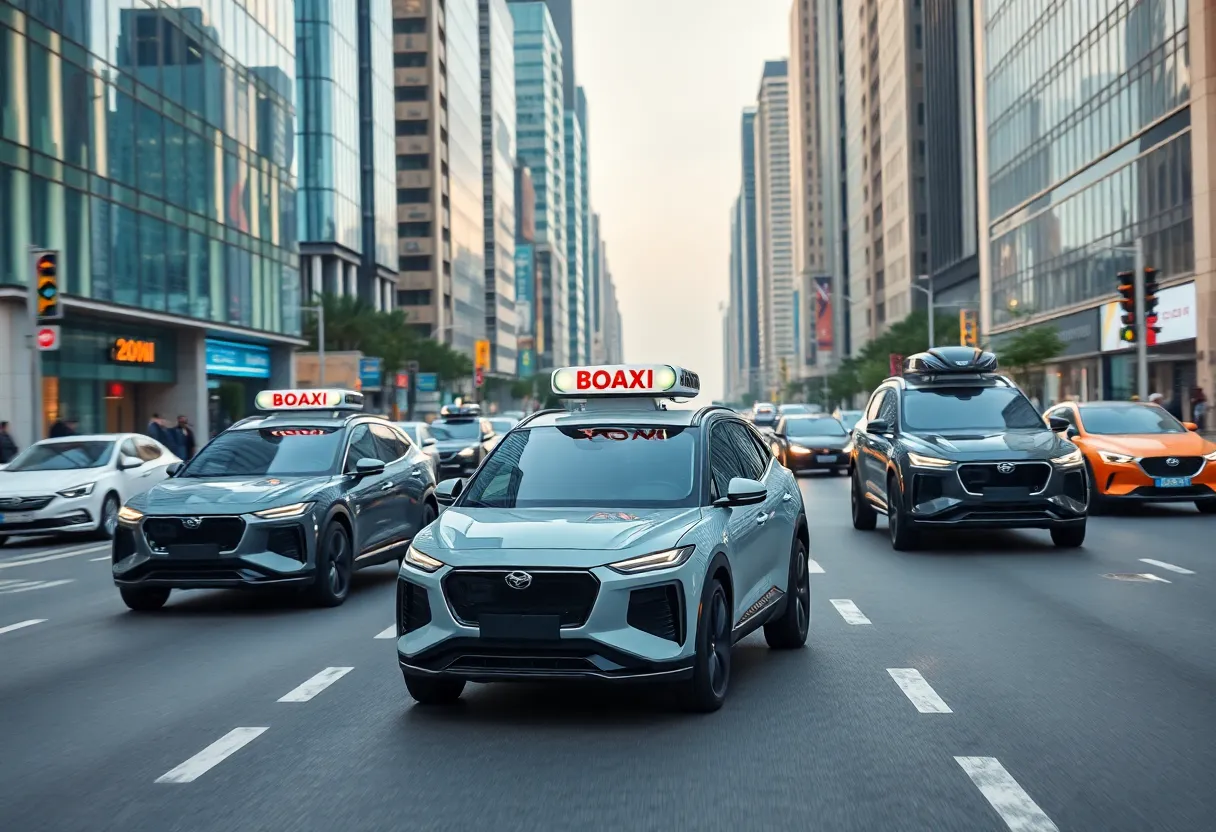News Summary
Waymo has announced significant plans to double its robotaxi production at the Waymo Driver Integration Plant in Mesa, Arizona. By 2026, the plant is expected to produce over 2,000 Jaguar I-PACE robotaxis, complementing the current fleet of approximately 1,500 vehicles. The facility aims to enhance manufacturing capabilities and support the production of additional models, including the Geely Zeekr RT. As Waymo continues to grow, it anticipates a boost in ride availability and revenue, aiming to reach 250,000 rides daily and $2 billion in annual earnings.
Arizona will soon see a significant increase in robotaxi production as Waymo, in partnership with Magna International, has announced plans to double its operations at the new Waymo Driver Integration Plant located in Mesa. By the end of 2026, production at the facility is expected to scale up to over 2,000 Jaguar I-PACE robotaxis, building upon the existing fleet of around 1,500 vehicles currently operating.
The Waymo Driver Integration Plant spans 239,000 square feet and commenced operations in October 2024. This facility is designed to enhance Waymo’s manufacturing capabilities, enabling it to potentially produce tens of thousands of fully autonomous vehicles each year. Production of the more advanced Geely Zeekr RT robotaxis will also begin at the Mesa plant later this year, reflecting a commitment to broaden the range of vehicles integrated into the fleet.
Waymo’s growth comes on the heels of its established commercial robotaxi service launched in Phoenix in 2020. The service has rapidly expanded its reach, conducting approximately 250,000 paid, driverless rides each week across various regions, including Austin, the San Francisco Bay Area, Los Angeles, and Phoenix. By 2026, Waymo aims to extend its service to additional cities such as Atlanta, Miami, and Washington, D.C.
Alphabet’s CEO has indicated that Waymo is still exploring its long-term business model, hinting at “future optionality around personal ownership” of self-driving vehicles. This consideration aligns with a preliminary partnership between Waymo and Toyota aimed at integrating self-driving technology into privately owned vehicles.
In contrast, Tesla is preparing to start its own robotaxi service in Austin, which will utilize Model Y SUVs and its ‘Unsupervised Full Self-Driving’ technology. Elon Musk has noted that Waymo’s vehicles tend to be more expensive, citing the advanced sensors used in Waymo’s models as a contributing factor. Waymo vehicles employ a combination of radar, lidar, cameras, and sonar for navigation, whereas Tesla primarily relies on camera technology.
Waymo’s existing production capabilities are set to undergo a major expansion. The company anticipates that the increase in its robotaxi fleet will lead to a significant boost in ride availability, potentially reaching as high as 250,000 rides a day with future production. This surge in service is expected to contribute to a substantial rise in revenue, with projections increasing from $100 million last year to a possible $2 billion annually as the fleet expands.
At present, more than 2,000 Jaguar I-PACE SUVs are in storage, awaiting modifications to integrate Waymo’s autonomous driving technology. In addition to the I-PACE, Waymo is currently testing new vehicle models, including the Hyundai Ioniq 5 and the Zeekr RT minivan, to further broaden its robotic fleet.
As Waymo continues to innovate and expand its manufacturing and service capabilities, it stands at the forefront of the self-driving vehicle revolution, competing with other industry leaders to shape the future of urban mobility.
Deeper Dive: News & Info About This Topic
- CNBC: Waymo to Double Robotaxi Production
- Wikipedia: Self-driving Car
- Forbes: Inside the Waymo Factory
- Google Search: Waymo robotaxi
- Automotive World: Waymo Partners with Magna
- Google Scholar: Waymo robotaxi manufacturing
- The Verge: Waymo Fleet Size and Factory News
- Encyclopedia Britannica: Autonomous Vehicles
- InsideEVs: Waymo’s Robotaxi Numbers
- Google News: Robotaxi Industry

Author: STAFF HERE PHOENIX WRITER
The PHOENIX STAFF WRITER represents the experienced team at HEREPhoenix.com, your go-to source for actionable local news and information in Phoenix, Maricopa County, and beyond. Specializing in "news you can use," we cover essential topics like product reviews for personal and business needs, local business directories, politics, real estate trends, neighborhood insights, and state news affecting the area—with deep expertise drawn from years of dedicated reporting and strong community input, including local press releases and business updates. We deliver top reporting on high-value events such as the Waste Management Phoenix Open, Cactus League Spring Training, and Arizona State Fair. Our coverage extends to key organizations like the Greater Phoenix Chamber of Commerce and Visit Phoenix, plus leading businesses in technology and healthcare that power the local economy such as Intel and Banner Health. As part of the broader HERE network, including HERETucson.com, we provide comprehensive, credible insights into Arizona's dynamic landscape.





